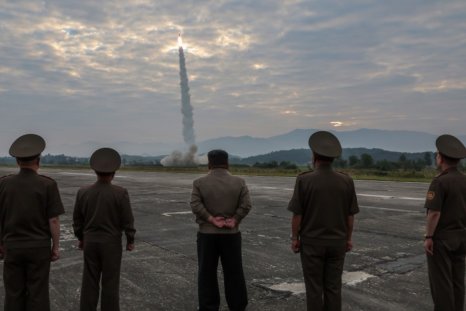Benjamin Netanyahu's speech to the UN General Assembly in New York on Friday was a bombastic defence of Israel's actions – the war in Gaza, the cross-border exchanges of fire with Hezbollah – since the act of terror committed by Hamas on 7 October.
The starkest message Netanyahu wanted to send was to Iran, Israel's bitter enemy and supporter of both Hamas and Hezbollah. The Israeli leader warned that there was nowhere in Iran or across the Middle East at large that Israel's military could not reach. It was a message that he would repeat on Monday just hours ahead of his forces crossing Israel's northern border – the beginning of the first invasion into Lebanon since the 2006 war with Hezbollah.
But that UN speech would have sent an equally stark message to Washington. Less than 48 hours before his address, US officials were briefing that America, alongside a number of other allies, had thrashed out a proposal for a 21-day ceasefire. Washington felt secure enough to go public with it, with officials suggesting it would be a case of when, not if, both Israel and Hezbollah signed on.
Yet Netanyahu's office put out a statement saying that any reports of a ceasefire were "incorrect". Landing in New York the Israeli prime minister added: “My policy, our policy, is clear: We continue to hit Hezbollah with all our might. We will not stop until we achieve all our goals.”
The US have become used to Netanyahu seemingly offering assurances in private and then doing the opposite in public. The prime minister has a fragile government coalition to try and keep together, and the far right elements that make up that coalition have been clear that a ceasefire – over Lebanon or Gaza – would drive them away. But the gap is getting unmanageable.

Washington was caught by surprise by the massive strike on Lebanon in the wake of Netanyahu's UN address that killed long-standing Hezbollah leader Hassan Nasrallah. Sensing the gathering momentum with Hezbollah's leadership in disarray, Netanyahu has pushed on.
The US – and allies like the UK – spent the weekend trying to avoid an Israeli ground invasion, seemingly managing to keep Israel to what it has claimed are "targeted" and "localised" raids, rather than a full-scale invasion that had apparently been on Netanyahu's mind. But the reality is that Washington and Israel's other Western allies are beholden to Netanyahu's impulses, The US, Israel's staunchest ally, has repeatedly called for Israel – and Iran – to hold back, but has needed to move the goalposts every time Netanyahu has decided that he needs to go further.
While many in Washington will see the wisdom in killing Nasrallah when there was a chance, it is based on the risky calculation that Israel will be able to achieve its aims of pushing Hezbollah back from the border and wrecking their ability to strike into Israel without sparking a regional war. Iran will be used to the bellicose rhetoric from Netanyahu, goading Tehran about Israel's military ability, but there will be limits. That is certainly true if Netanyahu suddenly decides that Israel's "targeted" operation will become more widespread.
The Lebanon invasion is provocative enough to bring a response from Tehran, indeed US officials have suggested a ballisitic missile attack on Israel could be imminent, but given Iran’s main deterrent against Israeli aggression is Hezbollah’s weapons, such a move likely be a mistake. Iran may calculate that Hezbollah will have the arsenal and capability to keep Israel at bay – extensive infrastructure in southern Lebanon cannot be dismantled in a matter of days – and on-the-ground warfare should favour the defender. Israel's last invasion in 2006 was certainly costly, and it ended in retreat.
But it is the extreme uncertainty that will worry many leaders around the West and the Middle East. It is clear that US now cannot guide Netanyahu, or even force him, to take the course of action they would like without really putting the pressure on in a way Washington will find uncomfortable. How much further Israel goes in its invasion will be down to the whims of one man – Netanyahu.
Disclaimer: The copyright of this article belongs to the original author. Reposting this article is solely for the purpose of information dissemination and does not constitute any investment advice. If there is any infringement, please contact us immediately. We will make corrections or deletions as necessary. Thank you.



